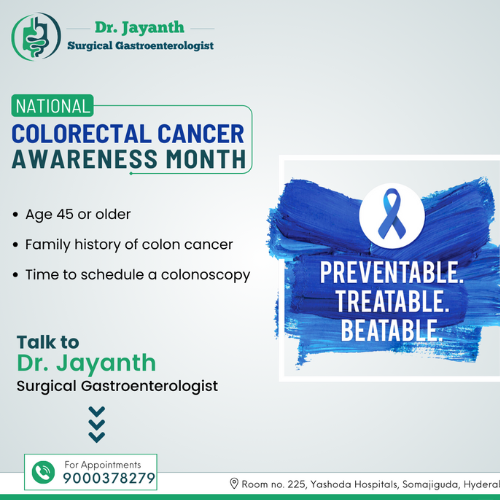Working Time
| Mon,Tue,Wed,Fri,Sat | 09:00am to 04:00pm |
| Thursday&Sunday | Holiday |
| Other Time | On Appointment |
Book Appointment

Introduction:
As we age, our bodies undergo various changes, and one aspect that may not receive as much attention as it deserves is digestion. The digestive system plays a crucial role in nutrient absorption, energy production, and overall well-being. However, aging can bring about changes that may impact the efficiency of the digestive process. In this blog post, we'll explore the dynamics of digestion and aging, and provide valuable tips to maintain a 'healthy' relationship with your digestive system as you age.
Understanding Digestive Changes with Age:
Slower Digestion:
One noticeable change in the digestive system with age is a reduction in the speed of digestion. The movement of food through the digestive tract may slow down, leading to a longer transit time. This can contribute to issues such as constipation and a feeling of fullness.
Decreased Stomach Acid:
Aging is often associated with a decline in the production of stomach acid. Adequate stomach acid is crucial for breaking down food and facilitating the absorption of nutrients. Reduced levels of stomach acid may impact digestion and nutrient absorption, potentially leading to deficiencies.
Changes in Gut Motility:
The muscles in the digestive tract may undergo changes, affecting their ability to contract and move food efficiently. This alteration in gut motility can contribute to symptoms like bloating, gas, and discomfort.
Altered Microbiome:
The gut microbiome, a complex community of microorganisms in the digestive tract, can undergo changes with age. Maintaining a diverse and balanced microbiome is essential for digestion and overall health. Imbalances in the microbiome may be linked to digestive issues and inflammation.
Tips for Maintaining Digestive Health as You Age:
Stay Hydrated:
Adequate hydration is crucial for maintaining digestive health. Water helps soften stools, making them easier to pass and reducing the risk of constipation. Aim to drink plenty of water throughout the day, and consider including hydrating foods such as fruits and vegetables in your diet.
Fiber-Rich Diet:
Incorporate fiber-rich foods into your meals to support digestive regularity. High-fiber foods, such as whole grains, fruits, vegetables, and legumes, provide bulk to the stool and help prevent constipation. Gradually introduce fiber to your diet to allow your digestive system to adjust.
Probiotics and Prebiotics:
Probiotics are beneficial bacteria that support a healthy gut microbiome. Foods like yogurt, kefir, sauerkraut, and kimchi are rich sources of probiotics. Additionally, prebiotics, found in foods like garlic, onions, bananas, and asparagus, serve as nourishment for the existing beneficial bacteria in the gut.
Regular Physical Activity:
Engaging in regular exercise has numerous benefits for digestive health. Physical activity helps stimulate the muscles in the digestive tract, promoting motility and reducing the risk of constipation. Aim for a mix of aerobic exercise and strength training to support overall well-being.
Mindful Eating:
Practice mindful eating by savoring each bite, chewing food thoroughly, and paying attention to hunger and fullness cues. Eating in a relaxed environment and avoiding distractions during meals can enhance digestion and prevent overeating.
Manage Stress:
Chronic stress can negatively impact digestive health. Explore stress-reduction techniques such as meditation, deep breathing exercises, or yoga to manage stress levels. Creating a balanced lifestyle that prioritizes relaxation is beneficial for both mental and digestive well-being.
Small, Frequent Meals:
Instead of large, heavy meals, consider consuming smaller, more frequent meals throughout the day. This approach can help ease the digestive process, preventing feelings of bloating and discomfort.
Supplement Wisely:
If nutrient deficiencies are a concern, consider working with a healthcare professional to determine if supplements are necessary. Vitamin B12, calcium, and vitamin D are among the nutrients that may require attention, especially in older individuals.
Regular Health Check-ups:
Schedule regular health check-ups to monitor and address any digestive issues or concerns. Early detection of potential problems allows for timely intervention and management.
Stay Informed:
Keep yourself informed about digestive health, age-related changes, and nutritional needs. Staying knowledgeable empowers you to make informed choices about your diet, lifestyle, and overall well-being.
Conclusion:
Maintaining a 'healthy' relationship with your digestive system as you age involves a combination of mindful lifestyle choices and a proactive approach to digestive health. By embracing habits that support digestion, staying hydrated, and being aware of age-related changes, you can foster a digestive environment that contributes to your overall well-being. Remember, consulting with healthcare professionals, such as a registered dietitian or gastroenterologist, can provide personalized guidance to address your specific needs and concerns. With a commitment to digestive health, you can age gracefully while enjoying a vibrant and active lifestyle.
About the Author:
Meet Dr. Moode Jayanth, an esteemed medical professional and prominent gastroenterologist situated in Somajiguda. Holding an MBBS, MS in General Surgery, and DNB in Surgical Gastroenterology, Dr. Jayanth serves as a Consultant Surgical Gastroenterologist and Robotic Surgeon. His dedication to advancing healthcare is evident in his notable qualifications, which include FIAGES and FALS in Robotic Surgery, underscoring his steadfast commitment to fostering holistic well-being. Dr. Jayanth's extensive experience enriches our exploration of the essential link between optimal food
